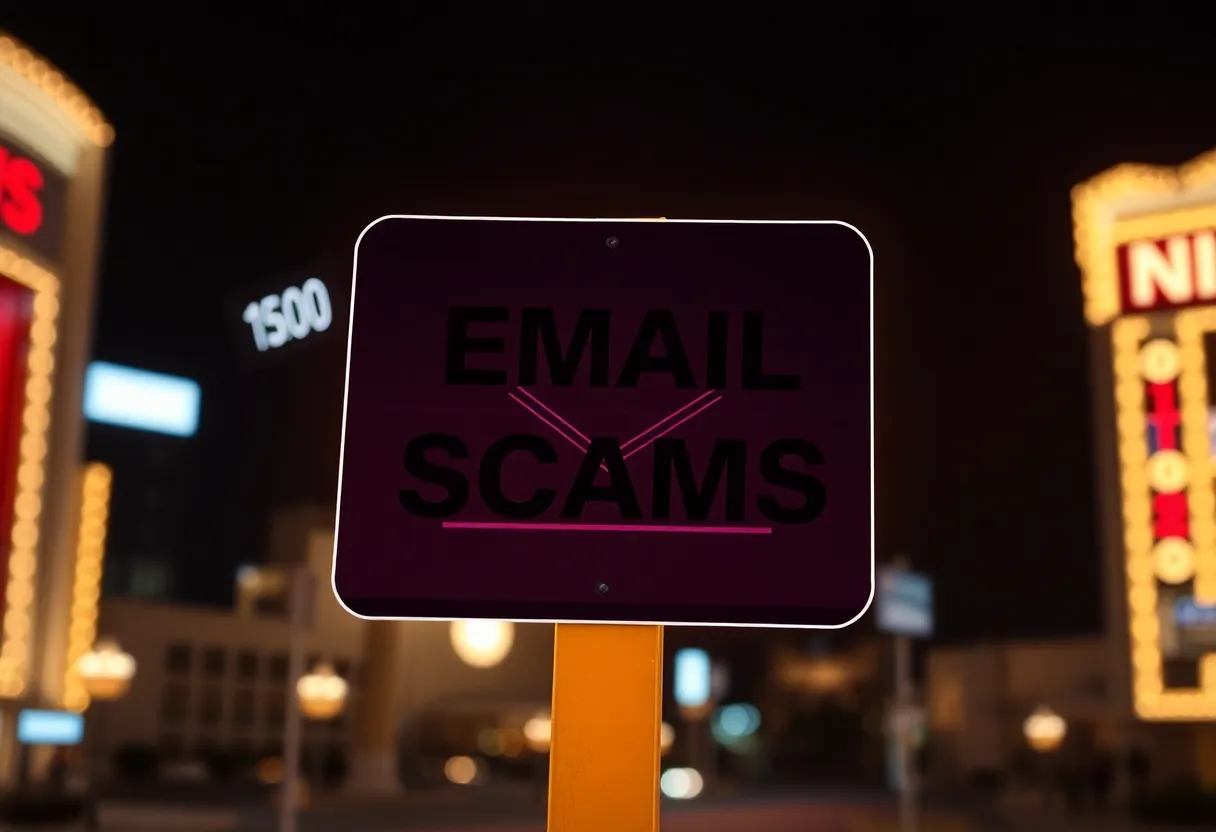News Summary
The City of Las Vegas has issued a warning about a fraudulent email posing as communication from the Planning Commission, asking for payment for an ‘application approval fee.’ Residents are advised to disregard it as it could lead to scams. This incident follows a series of similar scams aimed at vulnerable community members, prompting officials to reinforce the importance of verifying payment requests through official channels. Residents should stay vigilant and report any suspicious communications to local authorities to protect their personal information.
Las Vegas Community Alerted About Fraudulent Email Scheme
The City of Las Vegas has issued an urgent warning to its residents regarding a fraudulent email that falsely claims to originate from the Planning Commission. This deceptive communication requests payment for an “application approval fee,” leading beneficiaries to potentially divulge sensitive personal and financial information.
The City confirmed that this email is not authentic and advises recipients to disregard any instructions contained within the message. Residents should avoid clicking on any links present in the email as these could lead to further scams or data breaches.
Information on the Scam
This warning is part of the City’s ongoing efforts to safeguard community members from potential threats posed by fraudsters. The fraudulent email incident is not isolated; it follows a series of recent scams targeted at Las Vegas residents. Notably, there was a prior phishing operation involving text messages that falsely claimed recipients owed fines to the “Las Vegas Courts,” prompting many to worry about unpaid debts.
Officials have emphasized that Clark County does not solicit payments via text messages or emails. Such communications are indicative of scams and should always be treated with skepticism. Additionally, another scam has been reported where recipients received misleading emails purporting to be from “The DMV,” with threats of significant fines for alleged non-compliance.
Scam Target Demographics
These scams primarily seem to target older and more vulnerable groups within the community. Many of the communications often include alarming language, including threats of arrest or additional fines if the recipient fails to act swiftly. These tactics are designed to create panic and compel victims to act without thinking critically, leading them to fall victim to the scam.
In all circumstances, official court personnel will not solicit payments through phone calls or emails. This message aims to provide clarity and reinforce the importance of verifying any payment requests through official channels before taking action.
Community Advice
Residents are encouraged to remain vigilant and report any suspicious messages they receive. Such reports can be made to the Nevada Attorney General’s office or the Metro Financial Crimes Unit. Community awareness is essential in combating these scams and protecting personal information from exploitation.
As these fraudulent schemes continue to evolve, city officials highlight the necessity of educating oneself about common red flags associated with scams to minimize the risk of victimization. Stay informed, and reach out to trusted resources if you are uncertain about any communication requesting personal information or payments.
Conclusion
The City of Las Vegas remains committed to informing its residents about potential scams and ensuring their safety. By actively sharing this critical information, officials hope to empower the community against fraud while promoting awareness regarding the tactics used by scammers. It is essential to stay informed, stay cautious, and report any suspicious activities to maintain a safe environment for everyone.
Deeper Dive: News & Info About This Topic
HERE Resources
Additional Resources
- News 3 LV: City of Las Vegas Warns of Fake Planning Commission Email Scam
- KTNV: Clark County Warns Against New Scam Email
- 8 News Now: Las Vegas Police Warn of Text Scam
- Review Journal: Nevada Court Warns About New Jury Duty Phone Scam
- Wikipedia: Phishing
- Google Search: Email Scams 2023

Author: STAFF HERE LAS VEGAS WRITER
The LAS VEGAS STAFF WRITER represents the experienced team at HERELasVegas.com, your go-to source for actionable local news and information in Las Vegas, Clark County, and beyond. Specializing in "news you can use," we cover essential topics like product reviews for personal and business needs, local business directories, politics, real estate trends, neighborhood insights, and state news affecting the area—with deep expertise drawn from years of dedicated reporting and strong community input, including local press releases and business updates. We deliver top reporting on high-value events such as Electric Daisy Carnival, World Series of Poker, and Consumer Electronics Show. Our coverage extends to key organizations like the Las Vegas Chamber of Commerce and Three Square Food Bank, plus leading businesses in hospitality and entertainment that power the local economy such as MGM Resorts International, Caesars Entertainment, and Las Vegas Sands. As part of the broader HERE network, we provide comprehensive, credible insights into Nevada's dynamic landscape.



